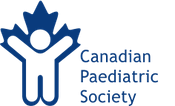Study investigates alcohol use and abuse by young Canadians
Posted on November 18, 2013 by the Canadian Paediatric Society | Permalink
Topic(s): Surveillance, Advocacy
Alcohol is the most commonly used drug by Canadian adolescents, and can lead to a host of negative short and long-term outcomes. Understanding more about youth drinking can help develop more effective strategies for treatment and prevention, leading to both social and economic benefits. That’s one of the aims of a new study by the Canadian Paediatric Surveillance Program.
“Young teens with severe intoxication could have a significant impact on the health care system at the time of acute presentation, and they may go on to be bigger consumers of health care resources—that part we are not entirely sure of yet,” said Dr. Amy Acker, paediatrician at Hotel Dieu Hospital in Kingston, Ontario.
Dr. Acker is co-principal investigator of a CPSP study of Canadian teens aged 11 to 15 who present to hospital because of severe alcohol intoxication. Dr. Acker’s team expects about 250 to 300 Canadian cases annually, based on the results of a similar Dutch study.
The study will also describe the demographics, co-ingestions, co-morbidities and short-term outcomes of these patients. Dr. Acker hopes that this information will raise awareness and help to develop better strategies to tackle alcohol use among youth.
“We focused on the younger age group … [to ensure] we would have a manageable number of cases reported,” said Dr. Acker. “Also, while the number of reported cases may only be the tip of the iceberg, by identifying these younger adolescents, we can focus on cases typically seen as more worrisome, and have a good starting place to try and facilitate some harm reduction strategies.”
For the purposes of this study, severe alcohol intoxication is defined as any adolescent who meets the following criteria:
- between 11 and 15 years of age;
- blood alcohol level > 0 g/L (if available); and
- presenting with severe intoxication, impaired consciousness requiring prolonged ER observation (≥ 6 hours) or hospital admission.
Dr. Karen Thomas, a resident at Queen’s University and co-principal investigator, said monitoring the severity of intoxication is another important part of the study.
“[Surveillance is] … actually being done for these patients within hospitals so that other physicians can know what to screen for when kids present with alcohol intoxication into their emergency departments, what other things should they be looking at,” said Dr. Thomas. “[As well,] perhaps the results of this study would be able to prompt more programs that could be helpful to paediatricians who do identify risk.”
Both Dr. Acker and Dr. Thomas recommend health care professionals talk to their patients about this issue and screen for risk using appropriate tools, such as the CRAFFT instrument.
This study, which runs from March 2013 to February 2015, is being funded by the Public Health Agency of Canada. For more information on this and other CPSP studies, visit www.cpsp.cps.ca.
Copyright
The Canadian Paediatric Society holds copyright on all information we publish on this blog. For complete details, read our Copyright Policy.
Disclaimer
The information on this blog should not be used as a substitute for medical care and advice. The views of blog writers do not necessarily represent the views of the Canadian Paediatric Society.
Last updated: Nov 18, 2013
